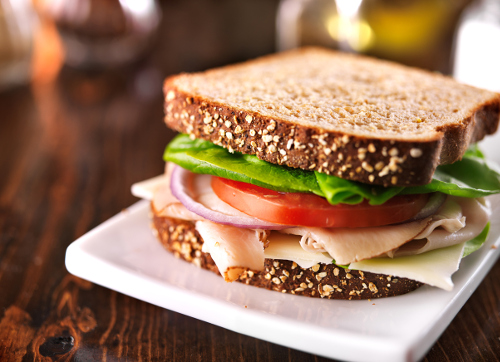 Mental health received a boost recently thanks to the help of a royal source. Comments made by Prince Harry and the Duke of Cambridge about the impact of their mother’s death nearly 20 years ago made headlines as the two royals teamed up to do some charity work for the Heads Together mental illness campaign. Prince Harry admitted that he had ignored his emotional distress for several years before seeking counseling to improve his mental health.
Mental health received a boost recently thanks to the help of a royal source. Comments made by Prince Harry and the Duke of Cambridge about the impact of their mother’s death nearly 20 years ago made headlines as the two royals teamed up to do some charity work for the Heads Together mental illness campaign. Prince Harry admitted that he had ignored his emotional distress for several years before seeking counseling to improve his mental health.
Many are hoping that bringing such high-profile names to the cause will help stop the stigma that is sometimes attached to mental health. Depression and anxiety can affect anyone at any age, and incidences of mental illness are on the rise.
The Link between Mental Health and Diet
As a nutritional therapist, I am always searching for dietary changes that could help my clients treat illnesses without turning to prescription drugs. This is why I find the growing research connecting better diet quality with better mental health so promising and exciting.
In a study published in the Journal of Physiological Anthropology in 2014, Australian scientists found a link between the increase of mental illness and depression and our diets changing from the nutrient-rich, whole foods our ancestors ate to the high-calorie, nutrient-deficient, and highly processed foods we eat today.
The declining nutrient content of our healthy foods may also play a role in mental illness. A 2009 research study conducted by the Biochemical Institute at the University of Texas at Austin showed evidence that during the past 50 to 70 years, the mineral content of fruits and vegetables has been declining because of modern agricultural practices. Therefore, it is imperative that we try to include as many nutrient-rich, unprocessed foods as possible in our diet to counterbalance the poor mineral content of our food.
Why the Gut’s the Key to Treating Mental Illness
I truly believe one of the best ways to improve your mental health is through your gut. The gut has its own nervous system, which sends information to the brain via the vagus nerve. Just as the brain affects the gut, what we put into our gut can alter the functioning of the brain.
The anti-inflammatory properties of nutrients in fruits, vegetables, nuts, and oily fish may have an impact on brain chemicals that regulate emotions and cognition. Almost all patients who suffer from depression show inflammation of the brain.
1. Omega-3 Fatty Acids
Studies show that one of the most important fats for mental health is omega-3 fatty acid. Foods containing it, such as cold water fish, seaweed, and chicken, have been shown to reduce symptoms of schizophrenia, depression, attention deficit hyperactivity disorder (ADHD), and other mental disorders. The reason is most likely due to the effect omega-3s have on the production of neurotransmitters (brain chemicals responsible for our moods), including dopamine and serotonin.
Omega-3 fatty acids are also essential for brain cell membranes. An imbalance of these fats could have an effect on how brain cells communicate with each other.
2. Tryptophan
The amino acid tryptophan, a building block of protein, may also help with mental illness by influencing mood and producing serotonin. Serotonin deficiency can result in depression and anxiety. Lean protein sources high in tryptophan include fish, turkey, chicken, eggs, and beans.
3. Complex Carbohydrates
Complex carbohydrates are also needed to facilitate the entry of tryptophan into the brain. They help reduce the symptoms of depression and anxiety, as well as improve overall cognitive functioning. Some good food options to get more complex carbohydrates into your system are green vegetables, lentils, beans, and whole-grain oatmeal or bread.
4. Prebiotics
Certain foods that feed the good gut bacteria, known as prebiotics, may also be linked to better mental health. Gut microbes unify most of the body’s serotonin, so if you are struggling with mental health, be sure to eat lots of prebiotic foods. These foods include garlic, artichokes, asparagus, onions, bananas, chicory root, and yogurt.
Feeling Low? A Change of Diet May Be What You Need
The evidence linking nutrition to mental health is so extensive that, in a paper published in The Lancet, a panel of international experts suggested that diet is “as important to psychiatry as it is to cardiology, endocrinology and gastroenterology.”
So, if you are feeling depressed or suffer from anxiety, try changing your diet to include these brain-friendly foods. A few simple dietary tricks may boost cognitive function and reduce symptoms of depression, anxiety, and other mental health disorders. If you think you may be suffering from a mental illness, be sure to contact your doctor to discuss your options.
Sources
Gaynor, M.L., “Diet and Depression,” Psychology Today, October 25, 2014; https://www.psychologytoday.com/blog/your-genetic-destiny/201410/diet-and-depression.
Collins, R., and Schend, J., “Depression and Diet,” Healthline, February 24, 2016; http://www.healthline.com/health/depression/diet.
Davies, W., “On mental health, the royal family is doing more than our government,” The Guardian, April 20, 2017; https://www.theguardian.com/commentisfree/2017/apr/20/mental-health-royal-family-government-children-illness.
